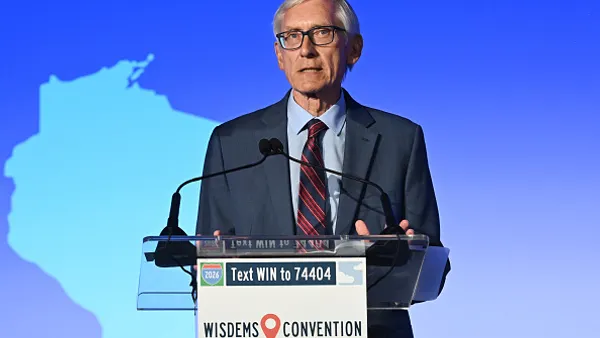In the face of an ongoing shortage of talent and evolving technologies that promise to remove some of the pain points of historically manual processes, today’s finance chiefs are starting to think differently about how they search for accounting professionals.
CFOs today are “very focused on systems forward accountants in the hiring process,” John Glasgow, CEO, CFO and founder of enterprise resource platform startup Campfire said.
Nowadays, finance chiefs are looking for leaner teams that can do more forward-thinking work — they “don’t want the accounting team to grow linearly with the business,” Glasgow told CFO Dive in an interview. Instead of seeking 30 accountants for the team, “we want three, and we want them doing more strategic work, but we need everything to be accurate,” he said of CFOs’ perspectives.
Rebuilding at the core
Glasgow founded Campfire with the aim of alleviating some of the historic pain points of legacy ERP platforms at a time when many finance leaders are preparing to integrate AI and automation further into their back-office processes. Launched in June 2023 early in the AI boom, “we had the unique opportunity to rethink accounting workflows from an AI-first mindset,” Glasgow said.
“Some folks have been building on top of existing solutions. We found that we needed to rebuild at the core,” Glasgow said of Campfire’s offerings.
Glasgow has served as the dual CEO and CFO of Campfire since August of last year, according to his LinkedIn profile. Prior to Campfire, he served as vice president of business development and partnerships for payments software provider Bill.com, and his past experiences have included roles at Invoice2Go and Adobe.
Designed as a “full replacement” for legacy ERP systems, Campfire takes an “AI-native” approach that views the technology as “another member of the team” — with the same requirements for transparency and accountability, Glasgow said.
“As a former finance leader, I would never send something to the board without asking for the supporting financial models and reviewing the formulas and the assumptions,” Glasgow said. For Campfire, that means reimagining workflows with AI that can still maintain “auditability and trust,” he said, avoiding the AI “black box” that is the biggest fear of today’s accountants or finance professionals.
“‘What if the AI performs a mistake and I send something to the board or auditor?’” he said of finance professionals’ concerns regarding AI tools. “’My job, my career, reputation, is at risk.’ So that's how we rethought processes.”
Enabling interoperability
As the need for strategic accounting solutions grows, Campfire is continuing to focus on building out its AI-native products, recently raising $65 million in a Series B funding round led by Accel and Ribbit, according to an Oct. 15 press release. The round came several months after its $35 million Series A, bringing its total funding to $100 million.
The larger balance sheet has helped to open up other opportunities for investment and to grow its client base —Campfire is “rapidly getting pulled up market, and now we actually have pre-IPO and public companies on Campfire [that] were really looking for us to have an incredible balance sheet” before tapping their services, he said.
With the most recent round, “we're able to invest in AI teams in a way we were not able to before,” Glasgow said. That includes moving to a 170-person headquarters in San Francisco, where the business is able to create more interoperability between different teams.
For instance, the company’s AI engineers sit next to its CX team, “so we're able to allow them to build and think differently in a much tighter feedback loop that we have found that works for us,” Glasgow said.
















